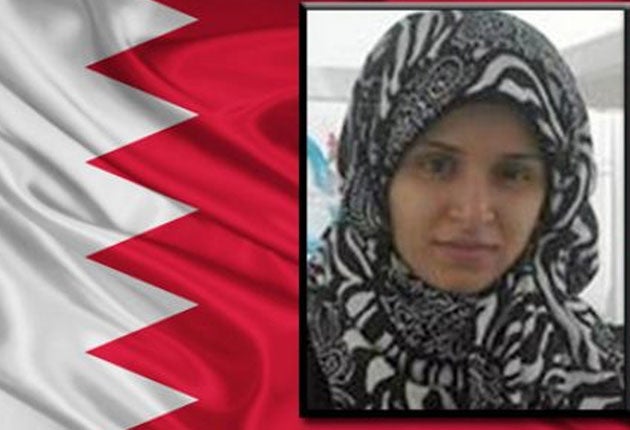Poet who became symbol of Bahrain resistance is jailed

Your support helps us to tell the story
From reproductive rights to climate change to Big Tech, The Independent is on the ground when the story is developing. Whether it's investigating the financials of Elon Musk's pro-Trump PAC or producing our latest documentary, 'The A Word', which shines a light on the American women fighting for reproductive rights, we know how important it is to parse out the facts from the messaging.
At such a critical moment in US history, we need reporters on the ground. Your donation allows us to keep sending journalists to speak to both sides of the story.
The Independent is trusted by Americans across the entire political spectrum. And unlike many other quality news outlets, we choose not to lock Americans out of our reporting and analysis with paywalls. We believe quality journalism should be available to everyone, paid for by those who can afford it.
Your support makes all the difference.The 20-year-old Bahraini poet Ayat al-Gormezi, who has become a symbol of resistance to repression on the island, was sentenced to one year in prison yesterday.
She was detained after she participated in a protest rally earlier this year and read out a poem appealing for democratic rights and criticising the monarchy. During her detention she was whipped across the face with electric cable, held for nine days in a tiny cell with the temperature near freezing, and was forced to clean lavatories with her bare hands.
She was jailed yesterday by a security court without any legal argument or her lawyer being allowed to speak, said a family member present at the trial. Her brother, Yousif Mohammed, said by phone from Bahrain that her treatment in prison had improved in recent days, in contrast to the extreme mistreatment she received when she was first detained at the end of March.
He attributed the change in the authorities' behaviour to the international publicity given to her case. The family has lodged an appeal against the sentence.
In addition to Ayat's receiving a lower sentence than had been expected, there are signs that the Bahraini government may be having second thoughts about its all-out assault on those who supported the demonstrations demanding political rights which took place in February and the first half of March. The Sunni monarchy allowed a rally, which attracted 10,000 people, organised by the main opposition party al-Wifaq to take place on Saturday. A few weeks ago the government had considered banning al-Wifaq.
The opposition, most of whose supporters come from the Shia, Bahrain's majority Arab community, showed by the size of the turnout that they were not crushed. Crowds chanted "We are the winners" and "With our blood and soul we sacrifice for Bahrain" as security forces held back and helicopters flew overhead.
"We salute every mother who lived through the fear of having the door of her home kicked in by security forces," al-Wifaq's leader Ali Salman told the rally. "We have lived through black months."
All of al-Wifaq's 18 members of parliament have resigned in protest at the clampdown, during which many of those detained have complained that they were abused or tortured. At least 400 people are still imprisoned.
President Obama saw the Bahraini Crown Prince Salman bin Hamad al-Khalifa in Washington last week and asked Bahrain to respect free speech and the right to free assembly.
Join our commenting forum
Join thought-provoking conversations, follow other Independent readers and see their replies
Comments